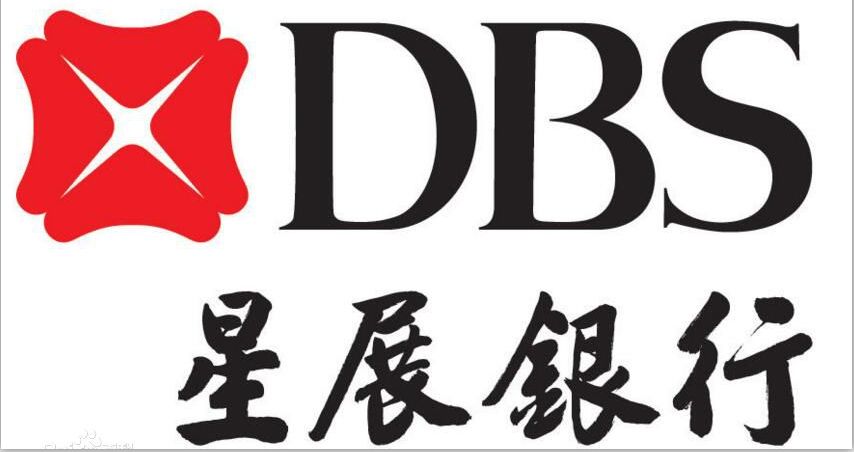What are the ways to remit money from Singapore to China?
Benjamin Clark - 2024-01-04 18:08:36.0 1063


Panda Remit

Panda Remit was established in 2018, with its headquarters located in Singapore, holding an MSO license. Since its inception, Panda Remit has been committed to providing global users with safe, fast, convenient, and reasonably priced international remittance services.
Leveraging its professional capabilities and extensive experience in the field of international payments, Panda Remit has to date received multiple rounds of financing from Sequoia Capital, Lightspeed Capital, and Jia Cheng Capital.
In 2020, Panda Remit became a strategic partner with Alipay and was the only remittance company selected for the Mastercard 2020 Start Path program.
Receiving Methods:
-
Bank Transfer
-
Alipay
-
WeChat
Payment Methods:
-
Online Banking
-
ATM
-
PAYNOW
Transfer Speed:
-
As fast as 2 minutes.
Limits:
-
Minimum of 100 SGD per transaction, maximum of 6000 SGD, with no limit on the number of transfers.
Fees:
-
First-time users: No fee.
-
Regular users: 10 SGD per transaction (no hidden or additional fees).

Western Union

Western Union is an international financial services company, established in 1851, headquartered in Denver, Colorado, USA, with a current market value of around 5 billion USD. It started as a telegram company and later evolved into a company offering global transfer and payment services.
Receiving Methods:
-
Cash Pick-Up: Withdraw cash at local Western Union partner banks or agents.
-
Bank Account
-
Alipay
Payment Methods:
-
Credit Card
-
Debit Card
-
Bank Transfer
-
PAYNOW
-
Pay in Store
Fees:
-
Vary based on payment method and remittance amount.
-
For 1000 SGD:Credit/Debit Card: 19 SGD per transaction (additional fees for credit cards)
-
Bank Transfer: 4.99 SGD per transaction
-
PAYNOW: 4.99 SGD per transaction
-
Pay in Store: 5 SGD per transaction
-
Transfer Speed:
-
Limit: Up to 5000 SGD per transaction
Drawbacks:
-
Although Western Union supports various receiving methods, exchange rates and fees differ for each, requiring multiple comparisons when choosing.

Singtel Dash Remit

Singtel Dash Remit is a cross-border remittance service platform under Singtel, Singapore's largest telecommunications company. Dash Remit offers regular remittance services, approved by the Singapore government and regulated by the Monetary Authority of Singapore, focusing on providing convenient, safe, and fast remittance services.
Receiving Methods:
-
Alipay-linked bank accounts
-
Union Pay Card (limited to 10 banks: Agricultural Bank of China, Bank of China, Bank of Communications, CITIC Bank, China Construction Bank, China Everbright Bank, Industrial and Commercial Bank of China, Ping An Bank, Postal Savings Bank of China, Shanghai Pudong Development Bank)
-
WeChat wallet or linked bank card
Payment Methods:
-
Singtel Dash mobile wallet
-
Online Top-Up: Choose eNETS, PayNow VPA / PayNow QR, bank account, or OCBC PayAnyone in the Singtel Dash APP. A fee of 1 SGD per transaction for top-ups using credit/debit cards or bank accounts. Applicable to all transactions, including auto top-ups.
-
Offline Top-Up: 7-11, AXS, Sheng Siong $TM, SoCash, Singtel Shop, and exclusive Singtel retailers. A fee of 0.5 SGD per transaction for top-ups at 7-Eleven, Sheng Siong $TM, and SoCash.
-
Fees:
-
A transaction fee of 10 SGD per transfer, regardless of the amount.
Transfer Speed:
-
Claimed to be real-time.
-
Union Pay Card transfer service hours: 7 AM to 10 PM (Singapore time)
Limits:
-
For non-Singapore work permit holders using Singtel Dash APP 6.2.0 (iOS) or 6.2.1 (Android) and above, with a verified remittance account: 5,000 SGD/day; 10,000 SGD/month.
-
For Singapore work permit holders: 3,000 SGD/day.
-
Additionally, Singtel Dash has an annual transaction limit of 30,000 SGD (or equivalent), applicable to all payments and remittances. This limit resets annually on January 1st.
-
Drawbacks:
-
Limited transfer limits and sometimes unfavorable exchange rates with Dash.

DBS digibank / POSB digibank

DBS Bank, originally known as the Development Bank of Singapore, is the largest commercial bank in Singapore, established in 1968, initially as a development financing institution by the Singapore government.
POSB, short for Post Office Savings Bank, established during the British colonial period in 1877, is one of the oldest and still operating banks in Singapore. POSB has been operating independently as a subsidiary of DBS Bank since its acquisition on November 16, 1998.
Receiving Methods:
-
Bank Accounts (including non-DBS/POSB accounts)
Payment Methods:
-
DBS and POSB account holders can make cross-border remittances through online banking, DBS digibank app, or POSB digibank app. Remittances cannot be made using debit/credit cards but only from bank accounts.
Fees:
-
No fee for remittances under 10,000 SGD.
Transfer Speed:
-
If remitted before 3 PM on a working day, it can be received on the same day (only on working days).
Limits:
-
A maximum of 10,000 USD per transaction (equivalent to about 13,000 SGD).
Drawbacks:
-
Remittance and receipt times are only on working days.
-
Limited receiving methods, cannot remit to Alipay/WeChat.

InstaReM

InstaReM, founded by Indian entrepreneur Prajit Nanu in 2014 and headquartered in Singapore, is a cross-border payment service provider, currently with branches in 11 countries.
Receiving Methods:
-
InstaReM designated bank accounts
Payment Methods:
-
PAYNOW
-
Debit Card
-
Credit Card
-
Bank Transfer
Fees:
-
-
0.25%-1% of the remittance amountFees vary depending on the amount, payment method, and recipient country.
-
Transfer Speed:
-
Within 36 hours (excluding holidays and weekends)
Limits:
-
PayNow: 200,000 SGD/day
-
Bank Transfer: No limit
-
Debit Card: 20,000 SGD
-
Credit Card: 20,000 SGD
Drawbacks:
-
Higher fees
-
Slower transfer speed
In summary, there are various options for remitting money from Singapore to other countries, each with its own characteristics. When choosing a remittance product, consider factors such as fees, transfer speed, availability, and security based on personal needs and transfer amounts. Regardless of the chosen method, always protect personal information and ensure the use of regular and trustworthy remittance services!



